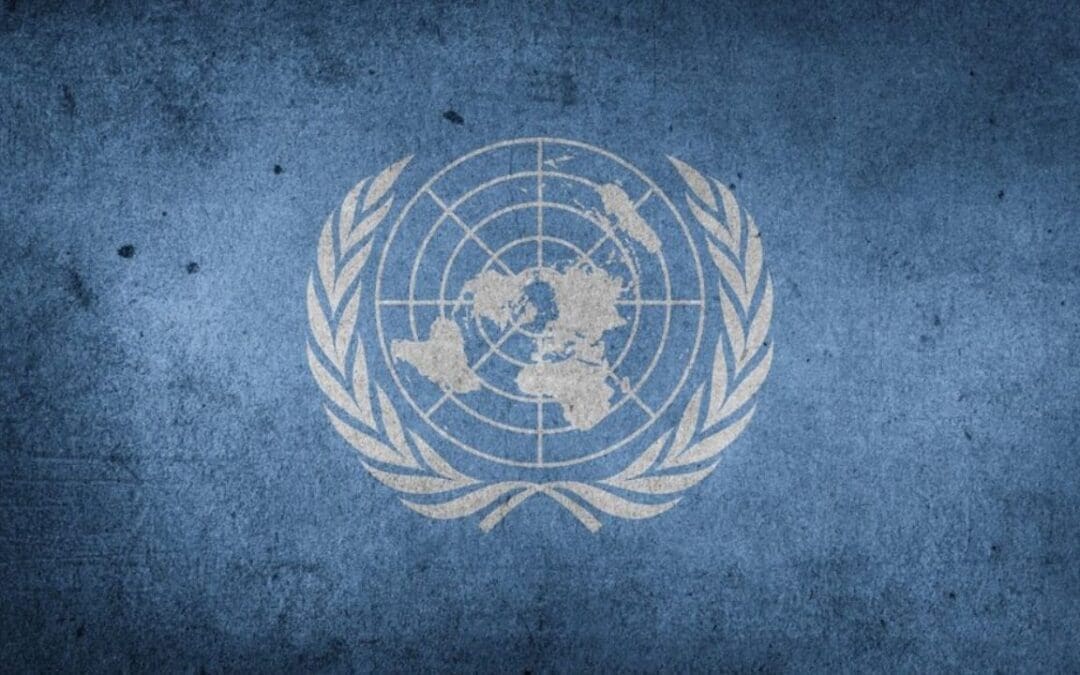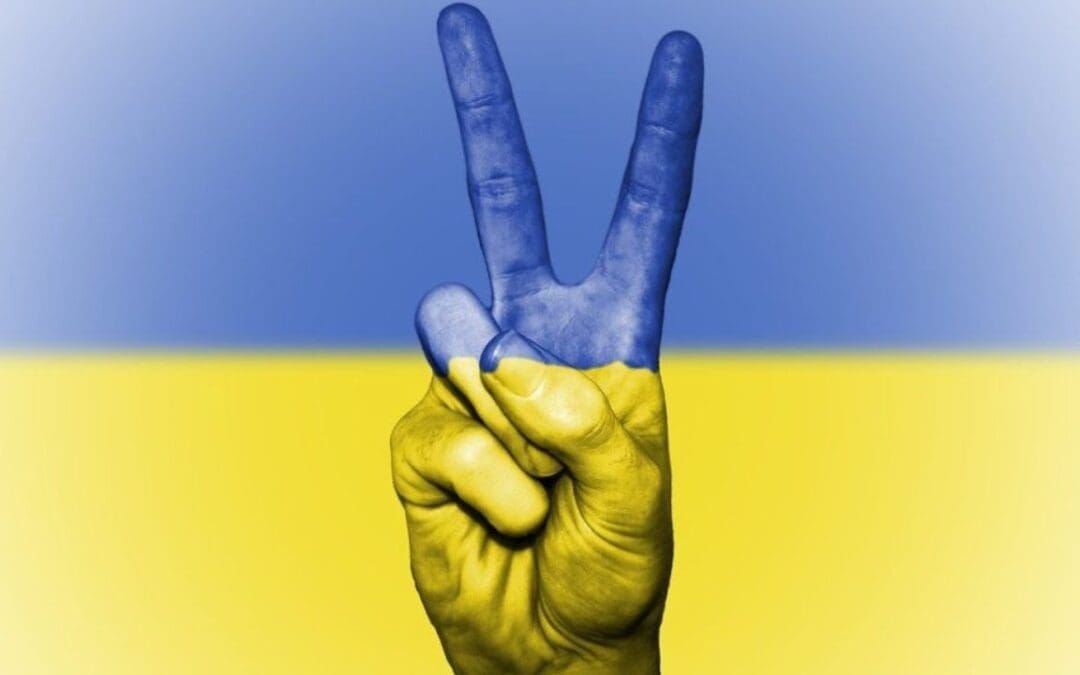
by Lawrence Wittner | Dec 10, 2022 | Peace
Although all wars are not imperialist wars, it is remarkable how many imperial conquests have occurred over past centuries.
Mobilizing their military forces, powerful states and, later, nations carved out vast empires at the expense of weaker or less warlike societies. Some of the largest and best-known empires to emerge over the millennia were the Persian, the Chinese, the Mongol, the Ottoman, the Russian, the Spanish, and the British.
The standard policy for these and other empires was to absorb new, conquered lands into their domains, either as parts of the mother country or as colonies. In the eighteenth century, the British, French, Spanish, and Portuguese empires used their military muscle to seize substantial portions of the Western Hemisphere from the native inhabitants. During the nineteenth and early twentieth centuries, imperial conquest accelerated rapidly around the world. By 1913 almost all of Africa had been colonized by European powers, while Imperial Russia, having annexed its neighbors, had become the world’s largest nation. Asia, too, had fallen largely under foreign domination. Meanwhile, the United States, established by a thin string of colonies along the Atlantic coast of North America, expanded across the continent to the Pacific, mostly thanks to successful wars against Mexico and Indian nations. Thereafter it moved on to colonize Hawaii, the Philippines, Cuba, Puerto Rico, and Guam.
Rising Resistance to Imperialist Wars
But imperialist conquests didn’t sit well with the emerging democratic spirit of the early twentieth century. They didn’t sit well with the rising socialist movement that denounced imperialism as a tool of the ruling class. They didn’t sit well with subject nationality groups and nations that were beginning to demand national self-determination and independence.
Consequently, as the horrors of World War I engulfed large portions of the globe and as war-weary soldiers and the public turned increasingly against imperialist war aims, government leaders adapted to the new mood. Having, belatedly, brought the United States into an alliance with Britain and France in their war against the Central Powers, U.S. President Woodrow Wilson issued his Fourteen Points in January 1918. This document promised no secret imperialist treaties, an adjustment of colonial claims, and a League of Nations to guarantee “political independence and territorial integrity to great and small States alike.” The Fourteen Points evoked an enthusiastic response, including from the young Ho Chi Minh, who turned up at the 1919 Versailles peace conference to press for Vietnam’s independence from French colonial rule.
In many ways, the Versailles peace settlement proved a failure. The promised “self-determination” was limited to Europe, and although the League did establish a “mandate” system to prepare colonies elsewhere for independence, it merely shifted their rulers from the Central Powers to the war’s victors. Moreover, the rising fascist nations—Germany, Italy, and Japan—threw off even a pretense of favoring decolonization and launched imperialist wars in Africa, Europe, and Asia.
Important Breakthroughs and Setbacks After World War II
Ultimately, it took World War II to shatter the old colonial system. In its aftermath, the imperial powers gradually abandoned their colonial rule in Africa, the Middle East, and Asia. In some cases (for example, in Indonesia, Algeria, and Vietnam), they were driven out by anti-colonial revolutions. More often, however, internal agitation for independence and external pressure by the United Nations led to the advent of self-government, after 1945, in most of the former 80 colonies.
Even so, as the old-style imperialism crumbled, a newer model—replacing outright colonialism with political control through occasional military intervention—arose during the Cold War. For the most part, this new imperialism was practiced by the Soviet Union in Eastern Europe and Afghanistan and by the United States in Latin America, and Vietnam. With the end of the Cold War, however, even the new imperialism declined.
Therefore, it came as a shock when, this February, the Russian government, having formally recognized Ukraine’s independence in 1994, launched an old-fashioned imperialist war against that nation. Only a few days before the invasion, Vladimir Putin issued a proclamation denying Ukraine’s right to an independent existence and claiming that Ukraine was “Russian land.” Not surprisingly, the UN General Assembly condemned the invasion by a vote of 141 to 5.
Although Putin justified the military assault by claiming that Ukraine’s membership in NATO would provide an existential threat to Russia, that membership was not at all imminent when the invasion occurred. A month later, when President Zelensky offered to have his nation remain neutral in exchange for a Russian withdrawal from Ukraine, Putin ignored the offer. In May, when Finland and Sweden, horrified by the Russian invasion, announced plans to join NATO, Putin failed to halt it. Instead, this October, Russia annexed about a sixth of Ukraine’s territory. Nor has Putin ever renounced gobbling up the rest of Ukraine.
Stopping Imperialist Aggression
Can anything be done to bring an end to imperialist wars?
Yes, several things could be done. One that has been effective on some occasions is to mobilize an anti-imperialist movement in the aggressor nation and elsewhere. Another that has worked is for the colonized to militarily resist the imperialist power―although, of course, the human cost can be enormous. Furthermore, the international community can roundly condemn imperialist wars and refuse to recognize territorial annexations that flow from them.
Ultimately, though, the world needs a strengthened international security system that will reject both the old and the new imperialism. In some ways, the United Nations already provides this framework through the UN Charter, the power to levy economic sanctions, and a structure for the mediation of conflicts. Even so, the world organization is not yet strong enough to wipe out the vestiges of imperialist aggression. No single country―and certainly not the imperial nations of the past―has the credibility and power to tackle this project alone. But the world community might just possess enough wisdom and determination to finish the job it began a century ago.

by Lawrence Wittner | Oct 13, 2022 | Peace, UN Reform
The war in Ukraine provides us with yet another opportunity to consider what might be done about the wars that continue to ravage the world.
The current Russian war of aggression is particularly horrific, featuring a massive military invasion of a smaller, weaker nation, threats of nuclear war, widespread war crimes, and imperial annexation. But, alas, this terrible war is but one small part of a history of violent conflict that has characterized thousands of years of human existence.
Is there really no alternative to this primitive and immensely destructive behavior?
Failed Alternatives
One alternative, which has long been embraced by governments, is to build up a nation’s military might to such an extent that it secures what its proponents call “Peace through Strength.” But this policy has severe limitations. A military buildup by one nation is perceived by other nations as a danger to their security. As a result, they usually respond to the perceived threat by strengthening their own armed forces and forming military alliances. In this situation, an escalating atmosphere of fear develops that often leads to war.
Actually, governments are not entirely wrong about their perception of danger, for nations with great military power really do bully and invade weaker countries. Furthermore, they wage wars against one another. These sad facts are not only demonstrated by the Russian invasion of Ukraine, but by the past behavior of other “great powers,” including Spain, Britain, France, Germany, Japan, China, and the United States.
If military strength brought peace, war would not have raged over the centuries or, for that matter, be raging today.
Another war-avoidance policy that governments have turned to on occasion is isolation, or, as its proponents sometimes say, “minding one’s own business.” Sometimes, of course, isolationism does keep an individual nation free from the horrors of a war engaged in by other nations. But, of course, it does nothing to stop the war—a war that, ironically, might end up engulfing that nation anyway. Also, of course, if the war is won by an aggressive, expansionist power or one grown arrogant thanks to its military victory, the isolated nation might be next on the victor’s agenda. In this fashion, short-term safety is purchased at the price of longer-term insecurity and conquest.
The More Promising Alternative
Fortunately, there is a third alternative―one that major thinkers and even, at times, national governments have promoted. And that is strengthened global governance. The great advantage of global governance is its replacement of international anarchy with international law. What this means is that, instead of a world in which each nation looks exclusively after its own interests―and thus, inevitably, ends up in competition and, eventually, conflict with other nations―there would be a world structured around international cooperation, presided over by a government chosen by the people of all nations. If this sounds a bit like the United Nations, that is because, in 1945, toward the end of the most destructive war in human history, the world organization was created with something like that in mind.
Unlike “peace through strength” and isolationism, the jury is still out when it comes to the usefulness of the United Nations along these lines. Yes, it has managed to pull the nations of the world together to discuss global issues and to create global treaties and rules, as well to avert or end many international conflicts and to use UN peacekeeping forces to separate groups engaged in violent conflict. It has also sparked global action for social justice, environmental sustainability, world health, and economic advance. On the other hand, the United Nations has not been as effective as it should be, especially when it comes to fostering disarmament and ending war. All too often the international organization remains no more than a lonely voice for global sanity in a world dominated by powerful, war-making nations.
The logical conclusion is that, if we want the development of a more peaceful world, the United Nations should be strengthened.
How the United Nations Could Be Strengthened
One of the most useful measures that could be taken would be to reform the UN Security Council. As things now stand, any one of its five permanent members (the United States, China, Russia, Britain, and France) can veto UN action for peace. And this is often what they do, enabling Russia, for example, to block Security Council action to end to its invasion of Ukraine. Wouldn’t it make sense to scrap the veto, or change the permanent members, or develop a rotating membership, or simply abolish the Security Council and turn over action for peace to the UN General Assembly―an entity that, unlike the Security Council, represents virtually all nations of the world?
Other measures to strengthen the United Nations are not hard to imagine. The world organization could be provided with taxing power, thus freeing it from the necessity for begging nations to cover its expenses. It could be democratized with a world parliament representing people rather than their governments. It could be bolstered with the tools to go beyond creating international law to actually enforcing it. Overall, the United Nations could be transformed from the weak confederation of nations that currently exists into a more cohesive federation of nations―a federation that would deal with international issues while individual nations would deal with their own domestic issues.
Against a backdrop of thousands of years of bloody wars and the ever-present danger of a nuclear holocaust, hasn’t the time arrived to dispense with international anarchy and create a governed world?

by Citizens for Global Solutions | Mar 2, 2022 | Organizational Statement
Citizens for Global Solutions stands in solidarity with all peoples and with any nation whose rights have been violated in international disputes of any kind. But at this chilling moment, we especially stand with the people of Ukraine against Russia’s illegal act of aggression. We call for adherence to international law as underscored in Article 2(4) of the United Nations Charter which states that, “All Members shall refrain in their international relations from the threat or use of force against the territorial integrity or political independence of any state, or in any other manner inconsistent with the Purposes of the United Nations.” It is obvious that President Putin has violated the spirit, if not the letter, of this most primary of all international agreements.
In 1947, Citizens for Global Solutions was founded as the United World Federalists to promote the concept that peace with justice can only be possible through the creation of a democratic federation of nations. All these years later, it couldn’t be more obvious that although the United Nations has done much good in the world, as it is currently structured it is largely unable to stop military aggression across national borders. We must transform the United Nations from a confederation of nations to a United Federation of Nations with the ability, through the vehicle of a world constitution and a global legislature, to create and enforce international law in order to eliminate war and nuclear weapons, protect universal human rights, save our fragile global environment, and cooperatively manage global pandemics. It is time for all of us to demand this better method to govern our world.
Taking this broader view, we recognize that our current flawed system of global governance lacks mechanisms of law enforcement and fair adjudication—exemplified by the fact that Russia was in a position to veto the Security Council’s condemnation of their own immoral act of aggression. Instead, our current world system depends upon the good will of leaders of all nations upholding their treaty agreements and resolving disputes through diplomacy, in accord with the narrow “self-interest” of their nations. What is playing out before our eyes in Ukraine, as well as in numerous other instances since WWII, demonstrates the inadequacy of a system that depends on good will and self-interest—and ultimately on the global rule of the nation (or alliance) with the strongest military and a willingness to use it—rather than the rule of impartial justice. Situations such as the Ukraine war will only cease when we have enforceable global law and the use of world courts to settle disputes. Without these mechanisms of genuine civilization, all sides are victims of a system that cannot guarantee peace and security.
Given the absence of the just rule of enforceable world law, we call on the Security Council to enforce member agreements, which we view as the best existing means to ensure the safety and protection of innocent civilians. We also commend the International Criminal Court for its decision to open an investigation on the situation in Ukraine. Those who commit genocide, war crimes, crimes against humanity and the crime of aggression must be brought to justice.




























